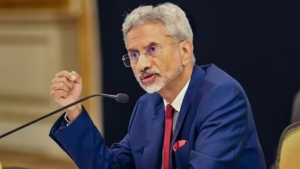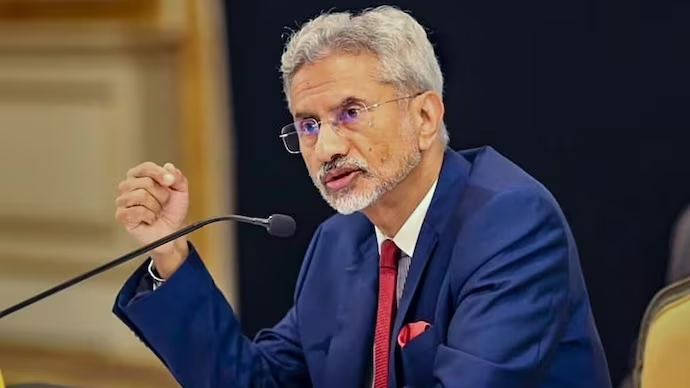Qalam Times News Network
New Delhi, June 11
India’s External Affairs Minister Dr. S. Jaishankar has delivered a sharp message to the global community, urging Western nations to rethink their strategic ambivalence on Pakistan-backed terrorism. Speaking in the aftermath of the recent Pahalgam terror attack in Jammu and Kashmir, which claimed 26 lives, Jaishankar asserted that the global ramifications of terrorism go far beyond the regional lens often used to frame India-Pakistan relations.

In an exclusive interview with European publication “Euractiv”, Jaishankar emphasized that terrorism, not bilateral tension, lies at the heart of the matter. “This is not just about India and Pakistan,” he said pointedly. “It is about terrorism. And that very terrorism will, sooner or later, return to haunt those who today choose to look away.”
Recalling the global security implications of past events, Jaishankar invoked the name of Osama bin Laden to underscore Pakistan’s dubious role. “Why did bin Laden feel safe living undetected for years in a Pakistani military cantonment—virtually next door to their equivalent of West Point?” he asked. His remarks come a month after India launched *Operation Sindoor* in retaliation for the Pahalgam attack.
During high-level meetings with European Commission President Ursula von der Leyen and EU Foreign Affairs Chief Kaja Kallas in Brussels, Jaishankar reiterated India’s value as a reliable and principled economic partner. Against the backdrop of ongoing EU-India free trade negotiations, he projected India as a trusted alternative to China, citing the nation’s demographic strengths, skilled workforce, and robust democratic framework.
“India, with its 1.4 billion people, offers not just a massive market, but also a partnership grounded in trust and shared values,” he stated, suggesting that India could serve as a strategic counterbalance in an increasingly polarized global economy.
On the Russia-Ukraine conflict, the Minister outlined India’s consistent stance of non-prescriptiveness. “We believe war cannot be the solution, but we are not here to impose a resolution either,” he remarked. Rebutting Western criticism of India’s approach to sanctions on Russia, Jaishankar stressed that New Delhi maintains meaningful diplomatic ties with both Moscow and Kyiv, adding, “Our policy reflects our history, our experiences, and our national interests.”
He also delivered a powerful critique of historical Western conduct towards India. Referring to the post-independence period, Jaishankar recalled how India’s borders were violated in its infancy, while several Western powers remained silent or evasive. “Today, those who claim moral high ground must remember their own past reluctance when principles were put to the test,” he said.
Highlighting India’s long-standing advocacy for a multipolar world, Jaishankar noted, “Multipolarity is no longer an aspiration; it is a reality. Europe must now learn to make decisions grounded in its own interests.” He also welcomed Europe’s growing discourse on “strategic autonomy,” a concept India has historically embraced.
The Minister was forthright in his criticism of elements within the EU’s climate policy, particularly the proposed Carbon Border Adjustment Mechanism (CBAM). “Let’s be honest – we do not support the idea that one part of the world will unilaterally dictate environmental standards for all others,” he asserted.
On the subject of US foreign policy, Jaishankar declined to speculate on the implications of a potential return of Donald Trump to the presidency. “Our objective is clear: we seek to enhance every relationship that aligns with our interests. The India-US relationship is vital—independent of any one personality.”
Turning to China, he observed growing caution among European firms over dependence on Chinese supply chains. “There is a visible shift in thinking,” he said. “More and more companies prefer to base their data and operations in environments that are seen as secure and reliable.” Though he did not name India directly, the inference was clear.
Jaishankar’s European visit comes at a crucial juncture for India’s foreign policy, as it seeks to navigate a complex global order marked by evolving alliances, economic realignments, and persistent security threats. His firm yet measured articulation of India’s stance signals a maturing diplomatic posture that is confident, unapologetic, and deeply rooted in realpolitik.
— *Reported by Qalam Times News Network*







